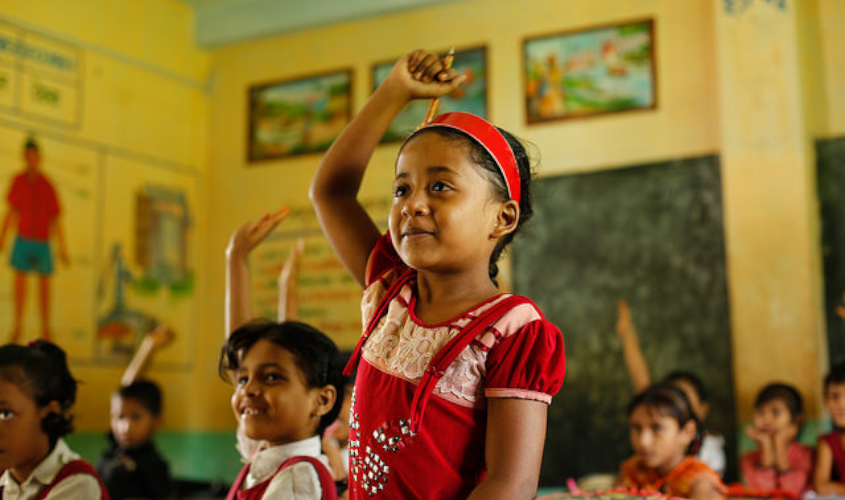The Key To Realizing the SDGs? Education.

Students participate in their lessons at the Akhborpur Government Primary School in Moulvibazar. Photo © Asian Development Bank
Wednesday, education stakeholders from across governments, civil society, and the private sector gathered at the High-Level Forum on Education at the United Nations to move the needle forward on realizing Sustainable Development Goal (SDG) 4: quality education for all.
The event was the last of a series of Action Events held by the President of the General Assembly’s office to bring awareness to key drivers of sustainable development including sustainable peace, climate action, financing, innovation, and education.
Focusing on inclusive and equitable quality education and lifelong learning opportunities for all, Peter Thomson, President of the General Assembly, opened the event by stating that “access to quality education is not only a goal in itself, but a fundamental building block to creating a better world of sustainable peace, prosperity, and development.”
Business has an undeniable role in helping to accelerate progress toward realizing the SDGs. By investing in girls’ education, education in emergencies, and early childhood development, businesses can help raise wages, support growth and empowerment, and foster the next generation of leaders in business.
75 million young people have had their education disrupted or ended by conflicts, natural disasters, epidemics, and other crises. Unfortunately, as stated in the new GEM Report policy paper, Aid to education is stagnating and not going to countries most in need, education only receives 2.7% of all humanitarian aid going to conflict and fragile-states.
Irina Bokova, Director-General of the UN Educational, Scientific and Cultural Organization stressed that “more resources for education means less for war, and an educated people is a peaceful people.” She continued on to say that “educational funding can be enhanced by engaging private sector stakeholders” to realize SDG4.
Globally, there are over 264 million young people out of school and one third of the world’s children do not have basic literacy and numeracy skills. Bokova underscored that “Girls and women face the steepest challenges. Two-thirds of the more than 750 million illiterate adults in the world are women.”
The private sector can add tremendous value by leveraging their core assets, providing services, leadership, funds, and using its expertise to catalyze progress to achieving SDG4. To support education in emergencies, GBC-Education has created a mechanism for business to engage beyond giving financial contributions. The REACT (Rapid Education Action) Initiative provides a platform for business to register resources, such as in-kind donations, volunteers, or other assets, that could be deployed at the onset of a crisis to support education.
In the words of Peter Thomson, education is “the golden thread that runs through the implementation of all 17 SDGs.” Without increased investment in education we will be unable to achieve quality education for all.
To learn more about how your business can get involved in GBC-Education and the REACT Initiative, contact us at [email protected].
